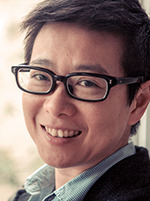We are proud to share with you Audrey Yue‘s keynote title and abstract:
“Of all the continents in the world, Asia is the gayest!”: Some Notes on Queer Asia as Method
This paper borrows its title from a tongue-in-cheek remark by gay Asian Australian writer Benjamin Law as a platfo rm to critically explore the stakes involved in living in, writing about and theorizing the contours of such a gay continent. It reflects on two developments in critical theory that have brought new methods in the humanities: the turn to Asia as a source of debate in theory, and the transnational turn in queer studies. To demonstrate this encounter between queer theory and Asia, this paper develops the critical paradigm of Queer Asia as Method. This paradigm highlights cultural representations that decenter the globalized formation of “queer”; initiate critical conversations on intra-regional cultural flows that are local and international; and provincialize Anglo-American queer knowledge production by revealing its local specificity and non-universality. This paper uses three case studies from Singapore that examine colonial transsexual history, transgender biomedical modernity and the contemporary inter-Asian performances of tomboy boybands to examine how these practices of trans-ing can be mobilized as strategies that inform the critical paradigm of Queer Asia as Method.
rm to critically explore the stakes involved in living in, writing about and theorizing the contours of such a gay continent. It reflects on two developments in critical theory that have brought new methods in the humanities: the turn to Asia as a source of debate in theory, and the transnational turn in queer studies. To demonstrate this encounter between queer theory and Asia, this paper develops the critical paradigm of Queer Asia as Method. This paradigm highlights cultural representations that decenter the globalized formation of “queer”; initiate critical conversations on intra-regional cultural flows that are local and international; and provincialize Anglo-American queer knowledge production by revealing its local specificity and non-universality. This paper uses three case studies from Singapore that examine colonial transsexual history, transgender biomedical modernity and the contemporary inter-Asian performances of tomboy boybands to examine how these practices of trans-ing can be mobilized as strategies that inform the critical paradigm of Queer Asia as Method.
Audrey is an Associate Professor in the School of Culture and Communication at the University of Melbourne. She will be delivering her Keynote address at 9am on 24th November, 2015. Check out our tentative timetable here: http://transformingfeminisms.noblogs.org/post/2015/09/25/tentative-timetable/
